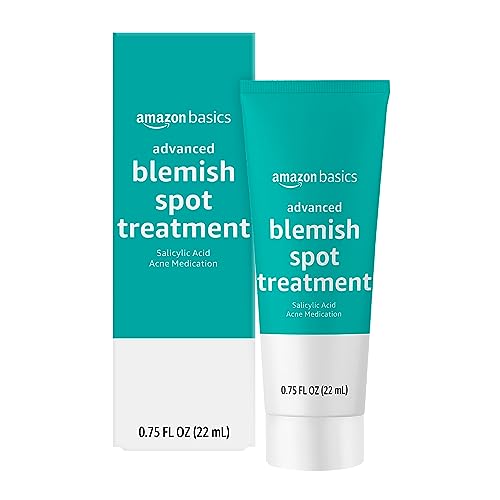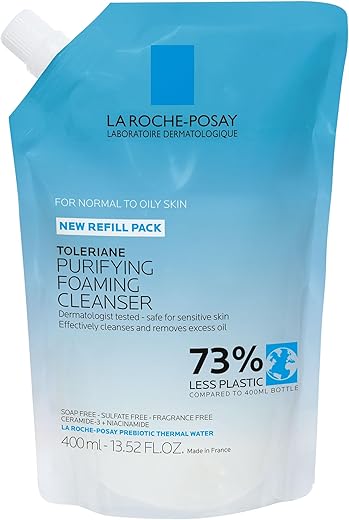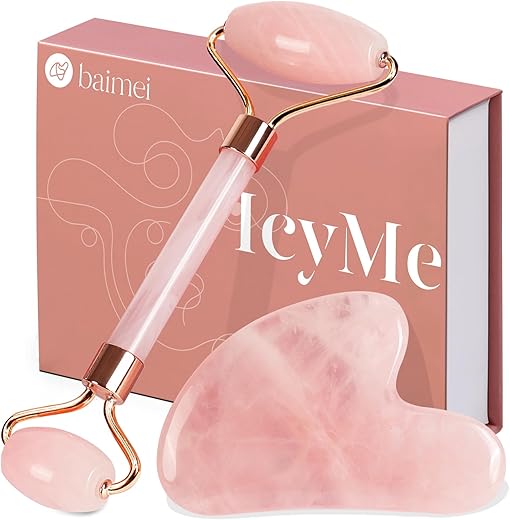
How do I choose the right acne spot treatment for my skin type?
Dealing with acne can be frustrating and overwhelming, especially when it comes to finding the right spot treatment for your specific skin type. We understand the struggle and want to help you navigate through the sea of options out there. In this blog post, we will guide you on how to choose the perfect acne spot treatment that will target your skin concerns and bring you closer to achieving clear, healthy skin.
Top-rated Acne Spot Treatments






Understanding your skin type
Before selecting an acne spot treatment, it is crucial to understand your skin type. Each skin type has unique characteristics and requires different ingredients and formulations to effectively target acne. By determining your skin type, you can choose the right products that will best suit your skin’s needs and help you achieve clearer, healthier skin.



Oily Skin
Oily skin is characterized by overactive sebaceous glands that produce excess oil, leading to a shiny complexion and a predisposition to acne breakouts. If you have oily skin, it is important to look for acne spot treatments that are specifically designed to control oil production and prevent clogged pores. Some key points to consider for oily skin types are:
- Look for oil-free or non-comedogenic (non-pore-clogging) formulations.
- Ingredients like salicylic acid or benzoyl peroxide are effective in controlling oil production and reducing acne.
- Avoid heavy creams or moisturizers that can further exacerbate oiliness.
Dry Skin
Dry skin lacks moisture and often feels tight or flaky. While acne is commonly associated with oily skin, it can also affect those with dry skin. It is essential to choose acne spot treatments that won’t further dry out your skin. Consider the following for dry skin types:
- Look for acne treatments that are gentle and hydrating.
- Ingredients like hyaluronic acid or glycerin can help retain moisture while treating acne.
- Avoid harsh ingredients like alcohol or fragrance that can strip away moisture.
Sensitive Skin
Sensitive skin is easily irritated and prone to redness and inflammation. It is important to choose acne spot treatments that are gentle and formulated for sensitive skin types. Consider the following for sensitive skin:
- Look for non-irritating and hypoallergenic formulations.
- Ingredients like tea tree oil or chamomile extract can help soothe sensitive skin while treating acne.
- Avoid fragrances, dyes, or harsh chemicals that can trigger sensitivity reactions.
Combination Skin
Combination skin has a mix of oily and dry areas. The T-zone, which includes the forehead, nose, and chin, tends to be oily, while the cheeks and other areas may be dry. Finding the right acne spot treatment for combination skin can be a balancing act. Consider the following for combination skin:
- Look for products that are formulated for combination skin or acne-prone skin.
- Consider using different products for different areas of your face, focusing on oil control for the T-zone and hydration for the dry areas.
- Ingredients like niacinamide or witch hazel can help balance the skin’s oil production while providing hydration.
Ingredients to look for
When it comes to acne spot treatments, not all products are created equal. The key to finding an effective acne spot treatment lies in understanding the ingredients it contains. Different ingredients address various aspects of acne, such as reducing inflammation, unclogging pores, and killing bacteria. In this blog post, we will discuss the key ingredients to look for based on your skin type and the benefits they provide. So let’s dive in!


Salicylic Acid
Salicylic acid is a popular ingredient in acne spot treatments due to its ability to penetrate deep into the pores. It exfoliates the skin, unclogs pores, and helps to prevent future breakouts. Here are some key benefits of salicylic acid:
- Clears and prevents blackheads and whiteheads
- Reduces inflammation and redness
- Exfoliates dead skin cells
- Regulates oil production
Benzoyl Peroxide
Benzoyl peroxide is another commonly used ingredient in acne spot treatments. It effectively kills the bacteria that cause acne and helps to clear up existing breakouts. Some key benefits of benzoyl peroxide include:
- Kills acne-causing bacteria
- Reduces redness and inflammation
- Unclogs pores and removes excess oil
- Prevents new breakouts from forming
Tea Tree Oil
Tea tree oil is a natural ingredient known for its antimicrobial and anti-inflammatory properties. It is particularly beneficial for those with sensitive or dry skin. Here’s what tea tree oil can do for your skin:
- Fights bacteria and reduces inflammation
- Soothes and calms irritated skin
- Helps to unclog pores
- Reduces the appearance of acne scars
Sulfur
Sulfur is an ingredient that has been used for centuries to treat acne. It helps to control oil production, unclog pores, and reduce inflammation. Some key benefits of sulfur in acne spot treatments include:
- Controls excess oil production
- Unclogs pores and removes impurities
- Reduces inflammation and redness
- Promotes healing of existing breakouts
Retinoids
Retinoids are derivatives of vitamin A and are known for their ability to speed up cell turnover and promote the growth of healthy skin cells. They are effective in treating acne by unclogging pores and reducing inflammation. Here are some key benefits of using retinoids in acne spot treatments:
- Exfoliates dead skin cells
- Reduces the appearance of acne scars
- Prevents clogged pores
- Regulates oil production
Choosing the Right Ingredients for Your Skin Type
It’s important to consider your skin type when selecting an acne spot treatment. Here’s a quick guide to help you choose the right ingredients for your skin:
- Oily Skin: Look for ingredients like salicylic acid, benzoyl peroxide, and retinoids to control oil, unclog pores, and prevent breakouts.
- Dry Skin: Opt for ingredients like tea tree oil and sulfur, which are effective in treating acne without drying out the skin.
- Sensitive Skin: Choose products with gentle ingredients like tea tree oil and sulfur to avoid irritation.
In conclusion, when it comes to acne spot treatments, the key is to understand the ingredients they contain. By choosing products with the right ingredients for your skin type, you can effectively address the different aspects of acne and achieve clearer, healthier skin. So take a closer look at the ingredient list and make an informed decision. Your skin will thank you!
Considering additional factors
Choosing the right acne spot treatment can be overwhelming, especially with so many options available in the market. While considering your skin type is essential, there are other factors that you should take into account to make an informed decision. In this blog section, we will delve into these additional factors to help you choose the best acne spot treatment for your needs.

Severity of Acne
The severity of your acne plays a crucial role in determining the type of spot treatment that will work best for you. Acne can range from mild to severe, and different treatments are designed to target specific acne types. Here’s a breakdown of the different acne severities and their corresponding treatment options:
- Mild Acne: Characterized by a few occasional pimples, whiteheads, or blackheads. Treatment options include over-the-counter creams, gels, or cleansers containing ingredients like benzoyl peroxide or salicylic acid.
- Moderate Acne: Involves more frequent breakouts, inflamed acne lesions, and a higher chance of scarring. Prescription topical treatments or oral medications may be necessary along with OTC spot treatments.
- Severe Acne: Characterized by deep, painful cysts, nodules, and widespread inflammation. Dermatologist-prescribed oral medications, such as isotretinoin, may be required alongside other acne treatments.
Skin Sensitivity
Considering your skin’s sensitivity is crucial when choosing an acne spot treatment. Some ingredients may cause irritation, redness, or dryness, particularly if you have sensitive skin. Look for products labeled as “gentle” or “suitable for sensitive skin.” Additionally, consider the following points:
- Fragrance-Free: Fragrances can irritate sensitive skin, so opt for fragrance-free products.
- Hypoallergenic: These products are less likely to cause allergic reactions.
Specific Concerns
Addressing specific concerns alongside treating acne can enhance your overall skincare routine. Here are common concerns to consider when choosing an acne spot treatment:
Acne Scars
If you have acne scars, look for spot treatments that contain ingredients like:
- Retinol: Boosts collagen production, promoting skin regeneration and reducing the appearance of acne scars.
- Vitamin C: Helps fade hyperpigmentation and promotes a more even skin tone.
- Alpha Hydroxy Acids (AHAs): Exfoliates the skin, reducing the appearance of scars and promoting cell turnover.
Hyperpigmentation
Acne can sometimes leave behind dark spots or patches of hyperpigmentation. Spot treatments that target hyperpigmentation often contain:
- Kojic Acid: Inhibits melanin production, reducing the appearance of dark spots.
- Niacinamide: Helps fade hyperpigmentation and evens out skin tone.
Comparison Table
To summarize the important details, here’s a comparison table highlighting the key points discussed:
| Factor | Treatment Options |
|---|---|
| Severity of Acne | – Mild: OTC creams with benzoyl peroxide or salicylic acid- Moderate: Prescription topical treatments- Severe: Prescription oral medications |
| Skin Sensitivity | – Fragrance-free products- Hypoallergenic |
| Acne Scars | – Retinol- Vitamin C- AHAs |
| Hyperpigmentation | – Kojic Acid- Niacinamide |
Remember, it’s always a good idea to consult with a dermatologist to determine the best acne spot treatment for your specific needs. By considering these additional factors, you can make a more informed decision and find an effective treatment that suits your unique skin requirements.
Product Recommendations for Acne Spot Treatment
Are you struggling with pesky acne spots that just won’t seem to disappear? Don’t worry, we’re here to help! In this section, we will provide you with a range of product recommendations that cater to different skin types and specific concerns. These recommendations will help you narrow down your options and choose a suitable acne spot treatment that will work wonders for your skin.


1. Salicylic Acid Spot Treatments
Salicylic acid is a powerhouse ingredient when it comes to treating acne spots. It works by exfoliating the skin and unclogging pores, which helps to reduce inflammation and redness. Here are some top-notch salicylic acid spot treatments to consider:
- Product A: This spot treatment contains 2% salicylic acid and is specifically formulated for oily and acne-prone skin. Its gentle formula penetrates deep into the pores to clear out impurities and prevent future breakouts.
- Product B: If you have sensitive skin, this spot treatment with 1% salicylic acid might be the perfect option for you. It is designed to soothe and calm inflammation while effectively treating acne spots.
2. Benzoyl Peroxide Spot Treatments
Benzoyl peroxide is another effective ingredient for targeting acne spots. It kills acne-causing bacteria and helps to reduce excess oil production. If salicylic acid isn’t working for you, give these benzoyl peroxide spot treatments a try:
- Product C: This spot treatment combines 5% benzoyl peroxide with soothing botanical extracts. It not only treats acne spots but also helps to prevent future breakouts without causing excessive dryness or irritation.
- Product D: If you’re looking for a spot treatment that packs a punch, this 10% benzoyl peroxide formulation might be just what you need. It rapidly clears acne spots and promotes faster healing, making it ideal for those with stubborn breakouts.
3. Natural and Herbal Spot Treatments
If you prefer a more natural approach to acne spot treatment, there are several options available that harness the power of botanical ingredients. Here are a couple of noteworthy products to consider:
- Product E: This herbal spot treatment contains a blend of tea tree oil, witch hazel, and aloe vera, which work together to calm inflammation, reduce redness, and promote healing. It is suitable for all skin types and is particularly beneficial for those with sensitive skin.
- Product F: This natural spot treatment is enriched with neem oil, which has powerful antibacterial properties. It effectively fights acne-causing bacteria and soothes irritated skin, making it a great choice for those with acne-prone skin.
4. Combination Treatments
Sometimes, combining different active ingredients can provide even greater results in treating acne spots. Here are a couple of combination treatments worth considering:
- Product G: This spot treatment combines the exfoliating properties of salicylic acid with the antibacterial properties of benzoyl peroxide. It effectively targets acne spots, unclogs pores, and reduces inflammation for clearer, healthier-looking skin.
- Product H: If you’re dealing with stubborn acne spots, this combination treatment might be your saving grace. It combines salicylic acid, benzoyl peroxide, and retinol to target acne from multiple angles, promoting faster healing and preventing future breakouts.
Remember, everyone’s skin is unique, so it may take some trial and error to find the perfect acne spot treatment for you. Consider your skin type, specific concerns, and any potential sensitivities when making your choice. We hope these product recommendations provide a helpful starting point on your journey to clear, blemish-free skin.
Finding the perfect acne spot treatment for your unique skin needs
In conclusion, selecting the perfect acne spot treatment for your unique skin type is crucial for achieving clear and healthy skin. By taking into account your skin’s specific needs, ingredients that are beneficial, and seeking professional guidance when necessary, you can confidently make the right choice. Remember, effective acne treatment is within reach with the right knowledge and understanding of your skin.

Hey, I’m Ava Wilson—a skincare enthusiast and a certified esthetician. I’m dedicated to sharing my knowledge and empowering others to achieve healthy, glowing skin through simple, effective routines and natural remedies. Join me on this exciting skincare journey, and let’s unlock your skin’s potential for a confident, beautiful you.





